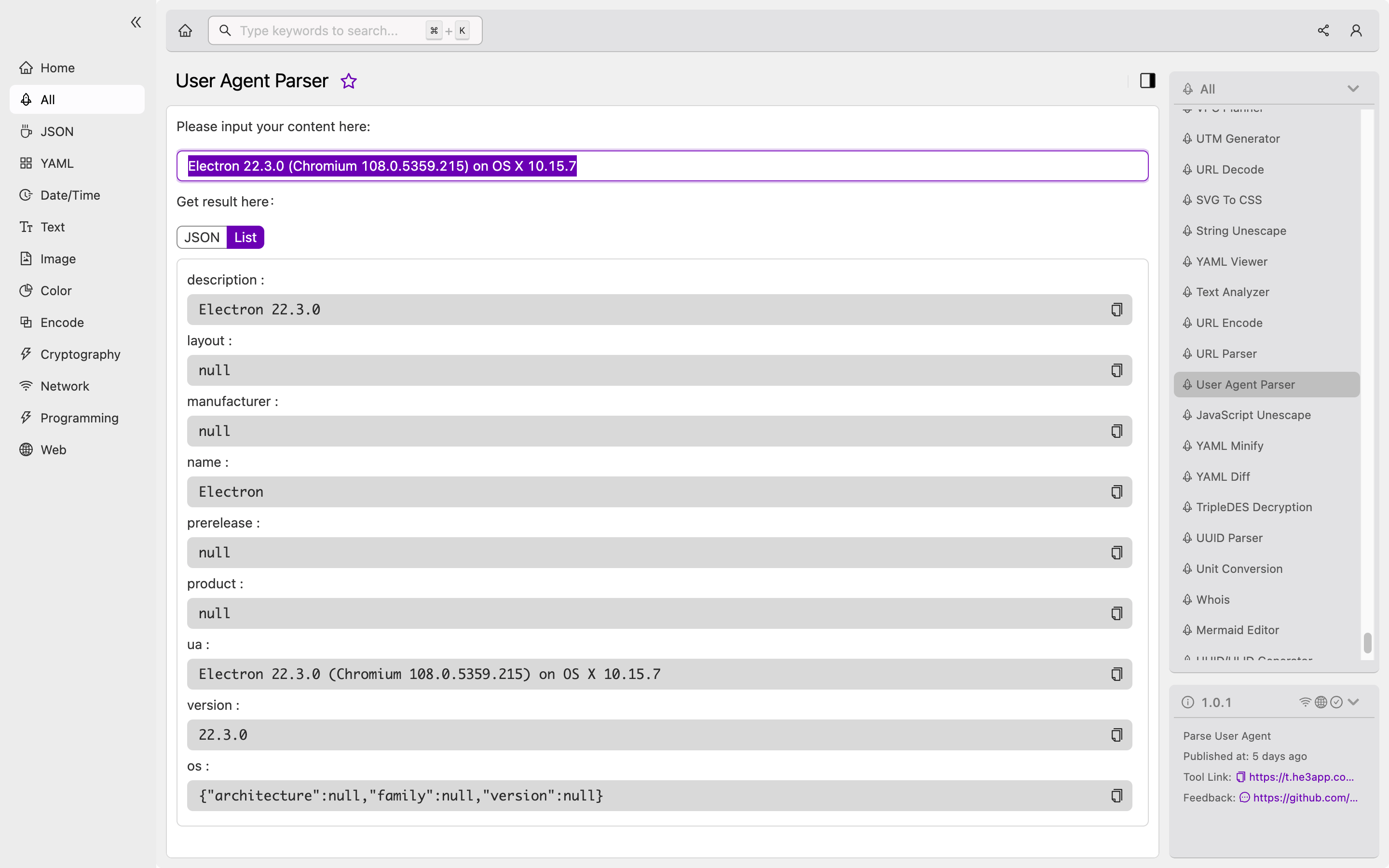Introduction
In web development, collecting and parsing user data is crucial for effective data analysis and better user experience. One tool that helps achieve this is the User Agent Parser. This tool extracts user data from user agents and helps in understanding user behavior. This article will provide an overview of User Agent Parser, how it works, and its key features.
What is User Agent Parser?
User Agent Parser is a tool that extracts user data from user agents. A user agent is a string of information that typically includes the web browser, operating system, and device being used to access a website. User Agent Parser is used by developers to collect and parse data related to user behavior on their websites. This tool is commonly used to obtain data on user demographics, preferences, and any issues they may be experiencing while using a website.
How does User Agent Parser work?
User Agent Parser works by parsing user agents and extracting the data contained within them. The tool uses regular expressions to match patterns in the user agent strings. Once a match is found, the tool extracts the relevant data and provides it in a structured format, such as JSON or CSV. Developers can then use this data for analysis or to improve the user experience on their website.
Sample Code
Here is a code example showing how to parse user agents using the Python user_agents library:
from user_agents import parse
user_agent_string = 'Mozilla/5.0 (Windows NT 10.0; Win64; x64) AppleWebKit/537.36 (KHTML, like Gecko) Chrome/58.0.3029.110 Safari/537.3'
user_agent = parse(user_agent_string)
print(user_agent.browser.family) # Chrome
print(user_agent.browser.version) # (58, 0, 3029)
print(user_agent.os.family) # Windows
print(user_agent.device.family) # OtherHow to use User Agent Parser in He3 Toolbox
Or you can use User Agent Parser tool in He3 Toolbox (https://t.he3app.com?20td ) easily.

Scenarios for Developers
Developers use User Agent Parser in a variety of scenarios. Some common ones include:
- Analyzing website traffic to understand user behavior and demographics
- Identifying and troubleshooting website compatibility issues across different devices and operating systems
- Personalizing website content based on user preferences and behavior
Key Features
Some key features of User Agent Parser include:
- Ability to parse user agents from different browsers, operating systems, and devices
- Structured data output in formats such as JSON or CSV
- Ability to extract data such as browser family, version, operating system, and device type
Misconceptions and FAQs
Misconception: User Agent Parser can collect personal data without user consent.
This is false. User Agent Parser only collects data from user agents, which is publicly available information about a user’s browser, operating system, and device. This information cannot be used to personally identify a user without their consent.
FAQ 1: Can User Agent Parser be used to track individual users?
No, User Agent Parser cannot be used to track individual users. It only provides information about the user’s browser, operating system, and device, not their identity or behavior.
FAQ 2: Is User Agent Parser legal to use?
Yes, User Agent Parser is legal to use as long as it is used for legitimate purposes and in compliance with data protection laws.
Conclusion
In conclusion, User Agent Parser is a useful tool for developers to collect and parse data related to user behavior on their websites. This tool can provide valuable insights into user demographics, preferences, and issues they may be experiencing while using a website. By using User Agent Parser, developers can improve website performance and provide a better user experience.
Learn more about User Agent Parser on Wikipedia or try it out yourself with a library such as user_agents in Python.
